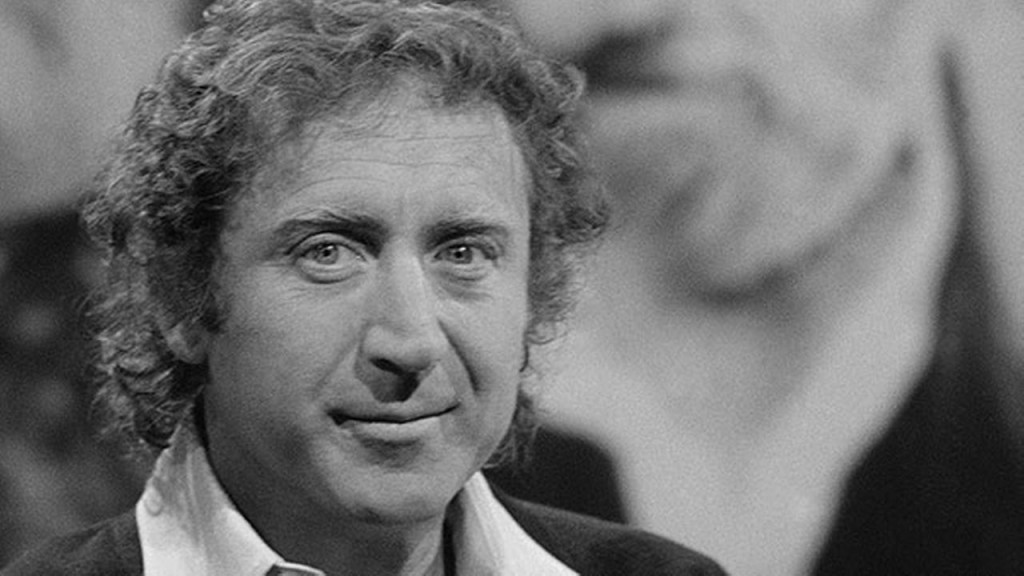A day after Gene Wilder died this week (at 83, from complications of Alzheimer’s) Religion News Service published “Gene Wilder’s Most Jewish Moments.” Coverage elsewhere has explored not only Wilder’s Jewish background, but a faith/non-faith approach to life that perhaps appropriately mirrored his comic/non-comic approach to art.
From the RNS story, by Jeffrey Salkin (Martini Judaism), most Jewish moment number two:
“The Frisco Kid.” There is a reason why this brilliant comedy is so often shown and re-shown at synagogues and Jewish community centers. It is a funny, yet tender meditation on the tenacity of Jewish identity. Rabbi Avram Belinski arrives from Poland, on his way to his new congregation in San Francisco. Despite various adventures and misadventures — and even in the face of torture — he absolutely refuses to part with the Torah scroll that he is bringing to his new community. It’s also a buddy film, co-starring Harrison Ford, which turns into a sweet story of interfaith (if you can say that Ford’s outlaw character actually has a faith) friendship and respect.
Tablet magazine, following Wilder’s passing, reprinted an excerpt from “Stars of David: Prominent Jews Talk About Being Jewish” (by Abigail Pogrebin):
His mother died when he was fourteen. His second wife’s daughter, whom Wilder adopted, is estranged from him. His great love, Gilda Radner, died only five years after their wedding in 1984. Ten years later, he was diagnosed with non-Hodgkins lymphoma, which he’s managed to fend off. When we meet, he’s nursing Karen’s mother through her dying days under their roof. I ask him whether Judaism has helped him through any of these hard times and he shakes his head. “I think Freud got me through,” he says. “When I was in desperate trouble for maybe eight or nine years, I went to a neuropsychiatrist.”
He talked at more length about his beliefs, and the religious background of his childhood:
“I’m going to tell you what my religion is,” Wilder announces, leaping to the point. “Do unto others as you would have them do unto you. Period. Terminato. Finito.” (I can’t help hearing Wonka’s voice in the factory: “Finito!”) “I have no other religion. I feel very Jewish and I feel very grateful to be Jewish. But I don’t believe in God or anything to do with the Jewish religion.”
Wilder—formerly Jerome Silberman—says his Jewish background consisted of attending an Orthodox temple where his grandfather was president. His sister and mother had to sit separately—“not being equal to men,” he jokes sardonically. His father was born in Russia, his mother in Chicago, of Polish descent, and neither was particularly observant. But he was bar mitzvahed—“I don’t know to please whom,” he says. “I practiced singing the maftir a year before my bar mitzvah,” he says, referring to his designated Torah portion. “And I was so distraught—because I had a high soprano voice and no one could hear me in the temple when I started to sing. So I said, ‘I’m not going to be bar mitzvah if you don’t have microphones next year!’ And they put the microphones in. And then, of course, my voice changed.”
His father switched the family to a Conservative synagogue when they moved to a new neighborhood in Milwaukee, but Wilder jettisoned the temple visits altogether when he was offended by the rabbi. “I went back to visit Milwaukee, Wisconsin, and heard the ignorant rabbi giving his views on the Vietnam War, and I wanted to get up and start hollering at him. But I thought, ‘My mother and father will be embarrassed and their friends will say, Why did he do that?’ So I didn’t. But that’s the last time I went to a temple.”
From a 2002 interview with Larry King, excerpted by the Deseret News:
KING: Do you have faith, Gene? Are you an optimist?
WILDER: Yes. I’m an optimist that — you’re not talking about religion are you? Just…
KING: What do you believe in? Somebody out there, someplace?
WILDER: You asked Stephen Hawking this one.
KING: Yes.
WILDER: And he said, if by God you mean the mathematical equation that accounts for the creation of the solar systems and the black hole, yes, I do believe. I’d give the same answer.
National Public Radio’s Robert Siegel talked with Wilder’s nephew Jordan Walker-Pearlman in an interview that aired on Monday. He explained Wilder’s reasons for not talking about his Alzheimer’s diagnosis. It perhaps echoes what Wilder called his religion: Do unto others.
WALKER-PEARLMAN: He was diagnosed about three years ago, and he made a personal decision and then a family decision not to disclose that disease. This decision was not as a result of vanity. There were times we would go out to dinner as a family and children would light up at the sight of him and smile. And because he never lost his instinct or sense or sensibility, it occurred to him that if that disease were made public, as regards him, that then after that smile, some parent may then say something about disease or sadness. And he was such that he could not bear to be responsible for one less smile in the world.

